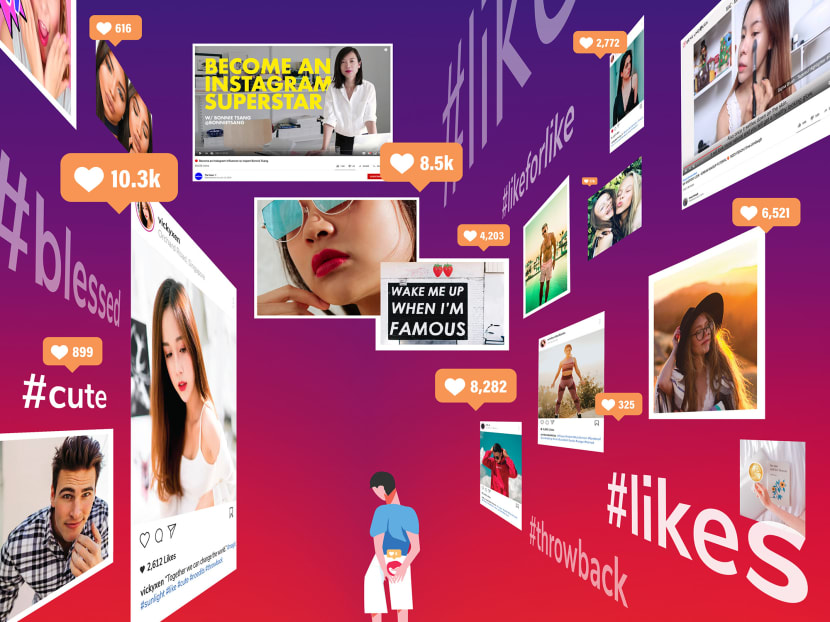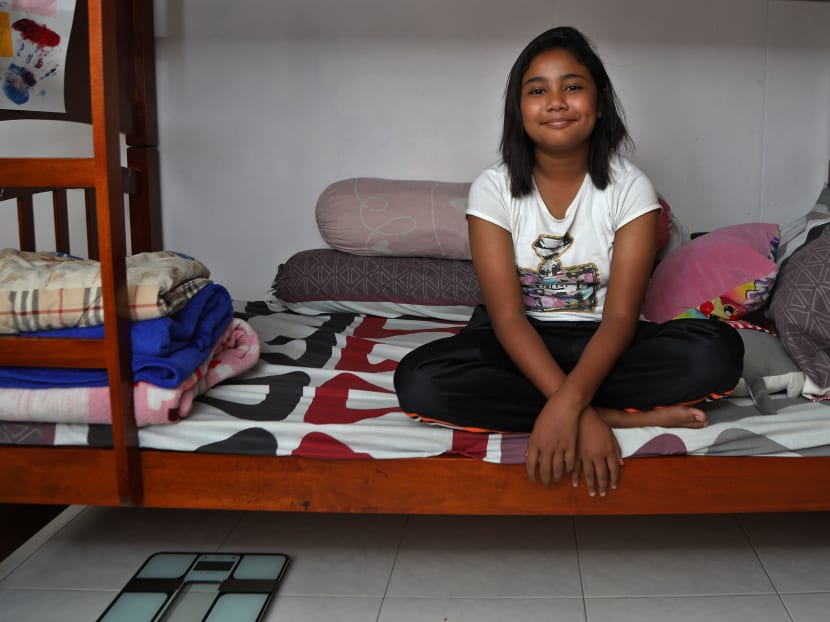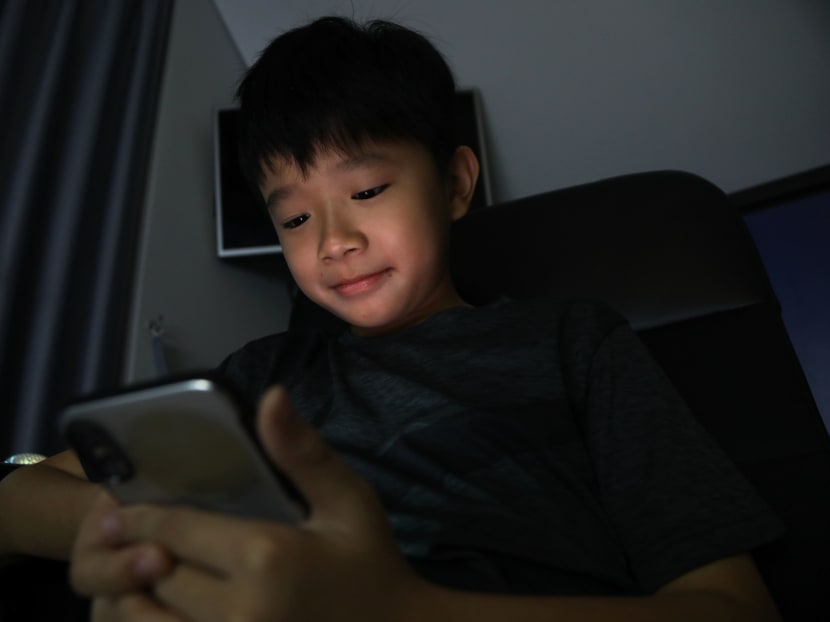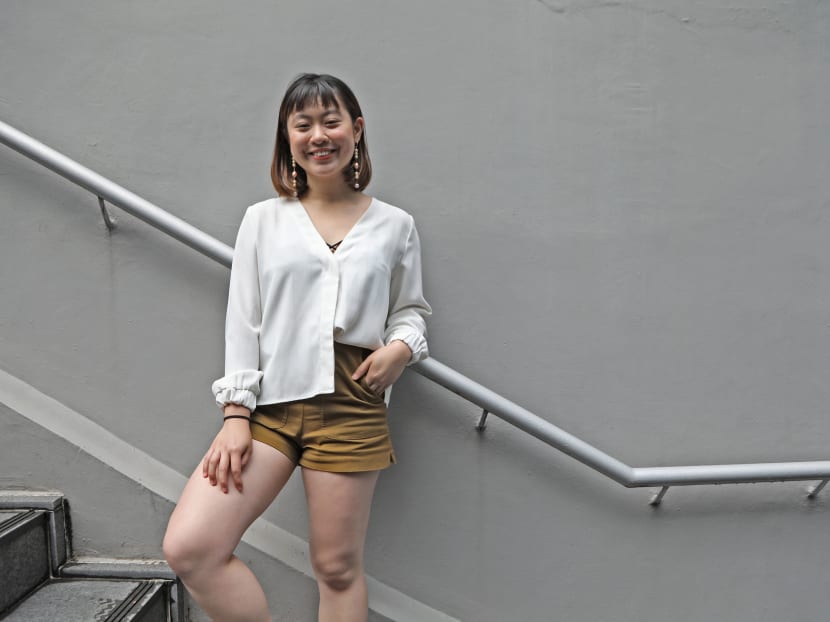The Big Read: Dangers lurk in youth’s chase for social media ‘likes’
SINGAPORE — Eight hours on TikTok, seven hours on Instagram, and two hours on YouTube. This is a snapshot of a day in the life of 21-year-old full-time model Lukas Koshy, who has been losing sleep since he got sucked into the latest social media craze, TikTok, a video-sharing app filled with 15-second lip-syncing videos, memes, and all things amusing to a Gen Z’er like him.

The pursuit of “likes”, along with the affirmation culture that social media platforms have created, is in the spotlight following Instagram’s recent announcement that it would be expanding its test to hide “like” counts on posts.
SINGAPORE — Eight hours on TikTok, seven hours on Instagram, and two hours on YouTube.
This is a snapshot of a day in the life of 21-year-old full-time model Lukas Koshy, who has been losing sleep since he got sucked into the latest social media craze, TikTok, a video-sharing app filled with 15-second lip-syncing videos, memes, and all things amusing to a Generation Z’er like him.
Five hours of sleep is all that he is mostly getting these days.
“It’s unhealthy,” the Singaporean admits, but he doesn’t see a need to change his ways.
Mr Koshy feels gainfully occupied when thinking up the next viral post, and putting out at least one to two TikTok posts a day. He has over 13,600 followers and a “like” count of more than 95,000.
“Superficial as it may seem, ‘likes’ are important to me,” he said. “It is validation for the content I put out.”
Then, there is Primary 5 pupil Aina Sofia Sirajuddin who confessed to being previously “addicted” to TikTok to a point of publishing as many as 15 posts a day when she first got started on the platform in the middle of last year.
“I just couldn’t stop doing it,” the 11-year-old said of the TikTok fad in school, which had her friends performing trendy dance moves such as “Hit the woah”, and lip-synced to music. “I get more ‘likes’ (than on Instagram), which made me feel like I was getting popular,” she added.

Although she has learnt that it is meaningless to tie her self-worth to a number on a platform such as TikTok, she would be lying if she said that her "like" count (which numbers around 6,000) and her more than 270 followers mean nothing to her.
Of course, it “feels good”, she said.
Adding that more than half her class is on TikTok, she said that if she could have it her way, she wants one million “likes” because “a lot of people have been getting millions and millions”.
“Sometimes I am bored, so I just do it to increase my ‘likes’,” Sofia said.
The pursuit of “likes”, along with the affirmation culture that social media platforms such as TikTok have created, is in the spotlight following Instagram’s recent announcement that it would be expanding its test to hide “like” counts on posts.
In explaining the move — which began in Canada and will now be expanded to six other countries — Mr Adam Mosseri, the new head of Instagram, said: “We don’t want Instagram to feel like a competition. We want people to worry a little bit less about how many ‘likes’ they’re getting on Instagram and spend a bit more time connecting with the people they care about.”
However, many have questioned if the Facebook-owned platform’s attempt to undo the culture where users, especially teenagers, become concern or even obsessed about what others think of them is a case of too little, too late.
In response to TODAY's queries, an Instagram spokesperson said: "We want Instagram to be a place where people feel comfortable expressing themselves. That includes helping people to focus on the photos and videos they share, not how many 'likes' they get."
Instagram's trial is being conducted in New Zealand, Australia, Brazil, Ireland, Italy, and Japan — in addition to Canada, where testing began in May. "We chose these markets to get a better sense of how the experience resonates with Instagram’s global community. We don't have any specific timing to share right now about other countries,” the spokesperson added.
While Singapore is not one of the countries picked for Instagram’s trial, many social media users here are also not immune from the “likes” chase, with even children as young as eight years old jumping on the bandwagon.
Read also
MOVE OVER, FACEBOOK
At 11, Zave Phua is already an active citizen of the social media world — a self-professed YouTuber and livestreamer with more than 50 subscribers across YouTube and Twitch, a live-streaming platform for gamers.
“Every day when I wake up, I think of how many subscribers I am getting now, how many views I am getting now, and also how much homework I have now,” the boy said.
To him, every “like” is a sign of affirmation that online users have “either enjoyed my content or my personality”. “It makes me strive to be better,” he told TODAY.

Facebook is absent from his world because it is “irrelevant” and “for old people”, Zave said with a grin, as he echoed Sofia’s thoughts. Nobody pays attention to what children post on Facebook.
On YouTube and Twitch, however, he could be a star or a hero.
His first YouTube videos showed him folding paper boomerangs and ninja stars, which “did not really work out” in attracting an audience. He then moved on to levitating using a camera trick and reacting to eating really spicy food, “which gave me a lot of views and gave me the courage to keep continuing”.
Among his exploits was a clickbait video which he titled “Porn at its finest XD” and contains only shots of the ceiling and his face. The Internet fell for it, with the video drawing 100 views in a short time. It prompted him to make a reaction video out of it, titled “Clickbait is too powerful”.
Zave is now into live-streaming his game plays on the wildly popular Fortnite Battle Royale during which a sign, “Streaming in process. Please do not come in”, will be hung on his bedroom door to keep away family members.
He would also record his game plays and cut them up to make video compilations for the YouTube platform.
Zave now depends on these “better quality content” to build a proper viewer base, or fanbase as he would like to call it.
“My first milestone will be 100 YouTube subs (subscriptions) and 100 Twitch followers,” he said. “My second milestone will be 1,000 on both Twitch and YouTube, and third would be 10,000. And it would just be going on from there.”
Read also
GEN Z’S PECULIAR SOCIAL MEDIA HABITS
On Instagram, Generation Z (those born between 1995 and 2015) co-exist with the general population, and some of their ways bewilder even millennials in the slightly older age bracket.
For example, millennials interviewed by TODAY said that they mostly treat their Instagram profile as a visual diary, but Generation Z members tend to heavily curate their profiles as an extension of their identity.
Fresh graduate Ili Nadhirah Mansor, 25, said that this could be seen by how younger users post statuses such as, “Be right back. Deleting stuff” or “Rearranging feed.”
Mr Samuel Zhu, 35, youth coordinator at Tabernacle of Joy church, observed that some young people are keeping at least two Instagram accounts — a “main” account and a “private” account.
The main account usually comprises a well-curated series of photos and is made public, while the private account is a “controversial” space where “no parent, pastor, or teacher” could exist and only trusted individuals are let in.
Some have a third “spam” account, where they dump random posts of things that might not be the prettiest but caught their attention, Mr Zhu noted.
He added that for these younger set, keeping separate Instagram accounts is — among other objectives — a way of managing their public profiles by putting their best self forward.
Conversely, the youth tend to reveal their true feelings or states of mind in their private accounts or Instagram stories which disappear after 24 hours.
Ms Ili recalled how she discovered two of her friends were struggling with depression: “It’s always the ‘Insta story’. Their profiles are always fine. You always have to watch ‘Insta story’ to find out what is wrong.”
Mr Zhu believes that over time, young people learn to pose in a certain way — looking down at a certain angle, for instance — or create specific types of content that would give them the “likes” that they are seeking.
Fashion student Gigi Soh, 22, recalled that when she was in Secondary 3, she used to head outside to take pictures which she will post on Instagram just to show that she “has a life”.

She also followed Instagram trends such as adding white borders or drawing white lines on the photos using third-party apps.
“I was hypersensitive in the first two years (of using Instagram),” Ms Soh said, noting how the feeds of her and her friends would turn out similar.
These days, she is more relaxed about what she puts up on Instagram.
Ms Soh is now a fashion communications and promotion undergraduate at the Norwich University of the Arts in the United Kingdom.
These days, she uses her Instagram account as an extension of her portfolio, which she believes would be taken into consideration by prospective employers in her industry.
Read also
DANGERS THAT LURK
Sociologist Tan Ern Ser from the National University of Singapore (NUS) said that for many young people who grew up with social media, life online “can constitute a big part of their social environment”.
He added: “I reckon some of these kids imagine themselves to be social media sensations.”
Indeed, some parents told TODAY that they knew of cases where children as young as four were starting to speak with a “YouTube slang”.
One parent, who declined to be named, caught her five-year-old daughter pretending to be a “vlogger” in front of the mirror by saying: “Click here to subscribe. Click here for more.”
Sofia, the Primary 5 student who used to be addicted to Tik Tok, recalled how she taught herself singing via YouTube.
Three months ago, she started performing song covers and uploading the videos on YouTube.
With the praises she started getting for her singing, she felt encouraged to put herself out on social media even more.
Dr Vincent Chua, an associate professor in sociology at NUS, said that social media’s “liking culture” latches on young people’s desires for affirmation — especially from friends — and popularity, as well as the need to be noticed.
Any young person would want to be “cool” and popular growing up, but taken to the extreme, such a desire breeds superficiality, insecurity, and most of all, a culture of unhealthy comparison, sociologists said.
Dr Chua said: “When all of life is mediated by a screen, and marked by portrayals of the idealised self, we learn to see others for their appearance and not for their substance. And the youth — and all of us — must learn to tell the difference.”
Experts interviewed reiterated that even if Instagram were to eventually hide its “like” count for all users around the world, people can still turn to other social media platforms to satisfy their need for affirmation.
Mr Chong Ee Jay from Focus on the Family Singapore, a non-profit group that works to strengthen family ties, said that the social media landscape has evolved to such an extent that mobile applications are going all out to capture the limited pool of users and attention span.
Assoc Prof Tan from NUS said: “Feeding people’s ego is good for business and banning ('likes’) is not an effective tool… If people are addicted to affirmation, they would likely look for other alternatives, and there will be platforms, existing or future, willing to oblige, if in more subtle ways.”
Eventually, these platforms could “produce a generation inclined to instant gratification, unrealistic expectations, perpetually experiencing a satisfaction gap, and treating others in a rather superficial and instrumental way”, Assoc Prof Tan warned.
Mr Koshy noted that users are already drawn by how they can gain followers faster on TikTok compared with Instagram.
However, he agreed that TikTok is “a messed-up place”, with trolls and bullies liking posts of people who are disabled or not good-looking, for example, as a way to mock them and help their posts go viral.
There are also concerns that such platforms could be exploited by paedophiles as tools for sexual grooming, the experts said.
Users are known to leave suggestive comments on posts put up by children, usually in the confines of their bedrooms.
Responding to the concerns, TikTok’s user and content operations manager Doreen Tan noted that its growing popularity “lies in the fact that it is a global platform that champions positive, authentic expression”.
Ms Tan stressed that TikTok is “absolutely committed to promoting a positive in-app environment" and ensures that "the community remains positive by fully empowering TikTok users to filter out negativity in their comments through the app”.
She added: “We also have built-in features like restricted viewing mode, in-app reporting, and our moderation team removes inappropriate content and terminates accounts that violate our terms of service.”
There are also policies and tools such as its community guidelines to “help people understand how to use the platform in a positive and appropriate way”.
Read also
MORE YOUTH STRUGGLING WITH SELF-ESTEEM ISSUES
Youth counselling centres and clinics told TODAY that they are seeing more cases of youths struggling with self-esteem issues due to their exposure to social media.
AMP, previously known as the Association of Muslim Professionals, cited as an example a 13-year-old boy who enjoyed the attention from posting videos of himself dancing on Instagram so much that he put up a video of himself dancing half-naked — and this later went viral on another platform and caused him much distress.
Psychologist Joel Yang from Mind What Matters clinic said that among the cases which he has seen was a 16-year-old student from an all-girls school. The girl checks Instagram every hour, takes up to an hour to craft a post, and will delete posts that do not reach a minimum number of “likes” after half a day, Dr Yang said.
“The teens I see are usually depressed, self-harming, or anxious. Social media exacerbates their condition. Already depressed, they start to compare themselves to impossible social media standards, and this further enhances their sense of hopelessness,” Dr Yang added.
The youngest person who had consulted him was a nine-year-old who was grappling with social media comparison and cyber-bullying issues.
For these children, society needs to encourage them to limit their social media time, and educate them about how social media can be used as a way to stay connected socially and “not as a means of social mobility”, he said.
Dr Rebecca Giess, a clinical psychologist with Promises Healthcare, pointed out that although social media is “second nature” to teens, they need to be reminded that it can bring increased exposure to harm, such as cyber-bullying, social isolation, and a fear of missing out.
ROLE OF PARENTS AND SOCIETY
When it comes to exposing young children to social media, parents interviewed by TODAY appear to have contrasting approaches.
At one end of the spectrum, some parents prohibit their children from using social media until they enter secondary school. At the other end, some parents are eager to expose their children early on when they are more receptive to parental advice and guidance.
Mr Muhammad Asraf, a father of four, said that his oldest son, who is now 11 years old, had asked for access to Facebook and Instagram when he was in Primary 4 because most of his classmates had their own mobile phones.
But the 35-year-old technician wants his boy to wait until he completes primary school.
Housewife Kerri Tan, 38, said that she would let her son — who is eight years old — have “limited” access to social media only when he enters Primary 5, while freelance photographer Koh Mui Fong, 39, said that she now allows her girls aged seven and 10 to play pre-downloaded mobile games and watch music videos on YouTube.
“There are too many things on social media that are fake,” she said. She added that instead of spending time on social media, her girls occupy themselves with activities such as playing dress-up, drawing and singing.
Ms Angie Chew, an adjunct associate professor at NUS who is also a mindfulness trainer, took a different approach. The 55-year-old had allowed her children, who are now 21 and 23, to go on social media when they were just eight years old.
She added: “I’d rather teach them young — at an age when they’re willing to learn from parents. As they grow older, they don’t want to learn from parents. They want to learn from friends. The earlier you teach them, the more receptive they are.”
She pointed out that social media is a new fact of life through which many life lessons could be gleaned — even when a child could start off looking to social media as a way to gain popularity.
“How do we stop (children from craving to be popular)? It’s like how can you stop a kid from talking?” she said. “You can’t say, ‘I’d keep them at home because they should not be socialising with anybody at this age.’ You cannot isolate them. If anything, social media is not going to go away. It has become part and parcel of our world today. So, teach them.”
Read also
If parents are “too strict” about their children’s use of social media, they could do things behind their backs, she said. Unsupervised, they are exposed to greater dangers, she reiterated.
Sofia’s mother sees it the same way: Madam Amisah Bahrom, 45, a clinical manager at Gleneagles Hospital, said that parents should allow their children to do as they wish on social media “as long as they know the limits”.
Sofia’s 25-year-old brother, Mr Muhd Shahfieudin Sirajuddin, finds his sister’s TikTok obsession “annoying” but normal. “Children today play through technology and their social networks,” he said.
Through TikTok, he has seen his sister “mature”. “I know she can defend herself (against online bullies). She knows what to reply.”
When she has problems, she knows that her family will always give her the best advice, he added.
With the help of TikTok, Sofia, who used to be shy about expressing herself, had also plucked up the courage to join her school’s speech and drama club.
Zave’s father Albert Lam, 51, chief executive officer of a spa and beauty salon, said that it is good for children to dream, referring to his son’s ambition to be a YouTuber with many subscribers.
“I do not want to hold him back. As long as he is not overdoing it (by neglecting his studies or family time), it is fine,” Mr Lam said.
“Social media is a must. I don’t mind (Zave being on it) because everybody is doing it. You must keep up with the times or be left out,” he added.
Mr Brian Poh, a senior clinical psychologist in the Department of Developmental Psychiatry at the Institute of Mental Health, reiterated that it is impossible to eradicate the use of social media among youth.
“(Parents) can prepare them for stressful situations by solving problems together and rehearsing how to handle specific situations like cyber-bullying.” he said.
Dr Vinti Mittal, director of SACAC Counselling, which offers counselling and psychotherapy services, said that apart from parents, other parties — such as educators, medical professionals, Internet experts and governments — should also play their part in recognising and mitigating the dangers.
“Unfortunately, it is only recently that the effects (of social media) are catching (society’s) attention,” she said.
Educational institutions and governments need to join hands to “ensure there are appropriate laws and guidelines for adults, children’s safety and privacy protection online”, she added.











